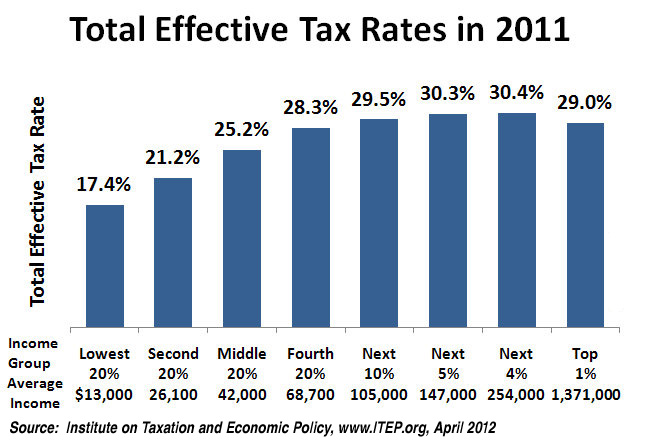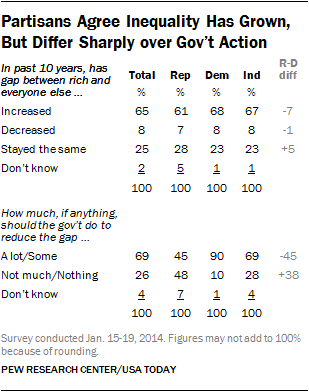- Joined
- Dec 13, 2015
- Messages
- 9,594
- Reaction score
- 2,072
- Location
- France
- Gender
- Male
- Political Leaning
- Centrist
The reason for the wealth inequality is primarily due (certainly since 2000) to the continued and ever growing government/central bank meddling in the economy.
You're confusing apples with oranges.
The above is untrue, Wealth Inequality is derived from Income Inequality - which in the US is purely and simply a matter of Income taxation (above family incomes of $100K) at a flat-rate. Meaning the more you earn, the more you keep and up it goes from After-tax Income into Wealth.
I repeat, any nation with a flat-rate taxation system is just shifting Income up into Wealth benefitting the rich and super-rich. The US flat-rate taxation starts at about $100K:

Why should Trump get along so well with Putin? Because it is entirely possible the Putin is actually richer than Trump, and both pay flat-rate taxation of upper incomes. Russia has a flat-rate tax of only 13%. (See here.) The oilygarchs like Putin are raking it in.
Progressive Taxation is more fair because taxing more income is only fair and equitable - which, I suspect, is an argument lost on you. More importantly, however, is the fact that for as long as upper-income taxation is so low (as it is), it will continue to motivate some people to "work the system" and by doing so they create anomalies like the Sub-prime Fraud. (Which sparked the Great Recession in 2010, from which we are only starting to exit after seven long years ...)


